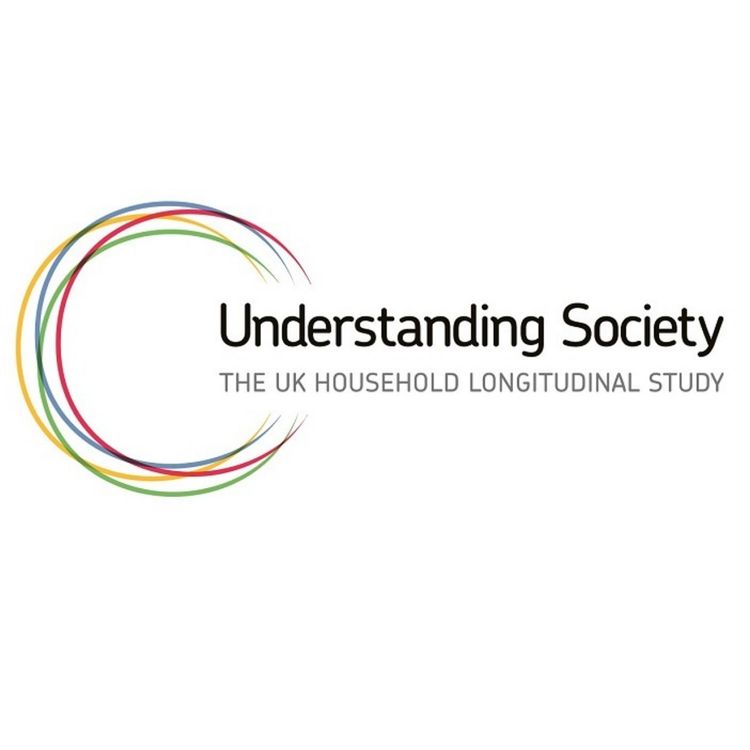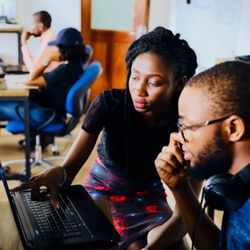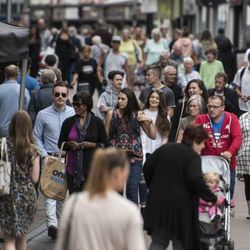Share

Understanding Society Podcast Series
Understanding data processing
Season 3, Ep. 13
•
Once the survey data is collected, how does it become a dataset ready for researchers to use? Associate Director for Data, John Payne, talks about the processes needed to turn survey responses into anonymised data.
More episodes
View all episodes

3. Job mobility and the gender pay gap
29:26||Season 7, Ep. 3In this episode, we discuss the effects of parenthood on job mobility and what this means for the gender pay gap with Dr. Silvia Avram, a Senior Research Fellow at the Institute for Social and Economic Research at the University of Essex, and Alesha De Freitas, Head of Policy, Research and Advocacy (at time of recording) at the Fawcett Society.
2. Being part of Understanding Society
13:35||Season 7, Ep. 2In this episode, one of our participants, Neil, talks about what it’s been like to be part of Understanding Society right from the beginning. What does it mean for him, and what changes has he seen in life and society since joining our predecessor, the British Household Panel Survey, in 1991?
1. Muslims, Covid, and mental health
29:33||Season 7, Ep. 1In the first episode of a new series of Insights, Chris Coates discusses changes in the mental health of Muslims in the UK during the pandemic with Miqdad Asaria, Assistant Professor of Health Policy at the London School of Economics and Political Science, who has researched this, and Maaria Mahmood, Director of the Muslim Youth Helpline.
3. Survey response rates during Covid
13:33||Season 6, Ep. 3In this episode, we’re looking at methodology. Pablo Cabrera Alvarez, a Senior Research Officer at the Institute for Social and Economic Research, talks about survey response rates and what happened to Understanding Society during the Covid pandemic, when interviewers couldn’t get to see participants face to face.
2. Housing and ageing
09:49||Season 6, Ep. 2In a new episode of our quick-listen one-to-one podcasts, Dr Amy Clair from the Australian Centre for Housing Research talks to Chris Coates from Understanding Society about research which suggests that private renting can age you faster than being unemployed or smoking.
1. Pregnancy and early childhood data
11:15||Season 6, Ep. 1In a new episode of our one-to-one podcasts, Edith Aguirre, a senior research officer at the Institute for Social and Economic Research, talks to host Chris Coates about Understanding Society’s ‘PEACH’ file. This brings our data on children under 10 together with data on pregnancy and child development, to help researchers study family dynamics.
6. Coastal communities
15:24||Season 5, Ep. 6Emily Murray, Director of the new Centre for Coastal Communities at the University of Essex, joins host Chris Coates to talk about the work of the new centre, and her research into the challenges and opportunities of living by the sea
5. Boomerang movers
33:34||Season 5, Ep. 5Emily Grundy, a Professor in the Institute for Social and Economic Research at the University of Essex, and Toby Murray, from the Money and Mental Health Policy Institute, discuss the trend of ‘boomerang’ movers – adult children who move back in with their parents, and what it means for wellbeing
4. Loneliness and mental health
23:09||Season 5, Ep. 4What can data tell us about loneliness and its links with poorer mental health? And what, if anything, can we do about it? Discussing this with host Chris Coates are Ann-Marie Creaven from the University of Limerick, and Isabel Taylor from the Joseph Rowntree Foundation.